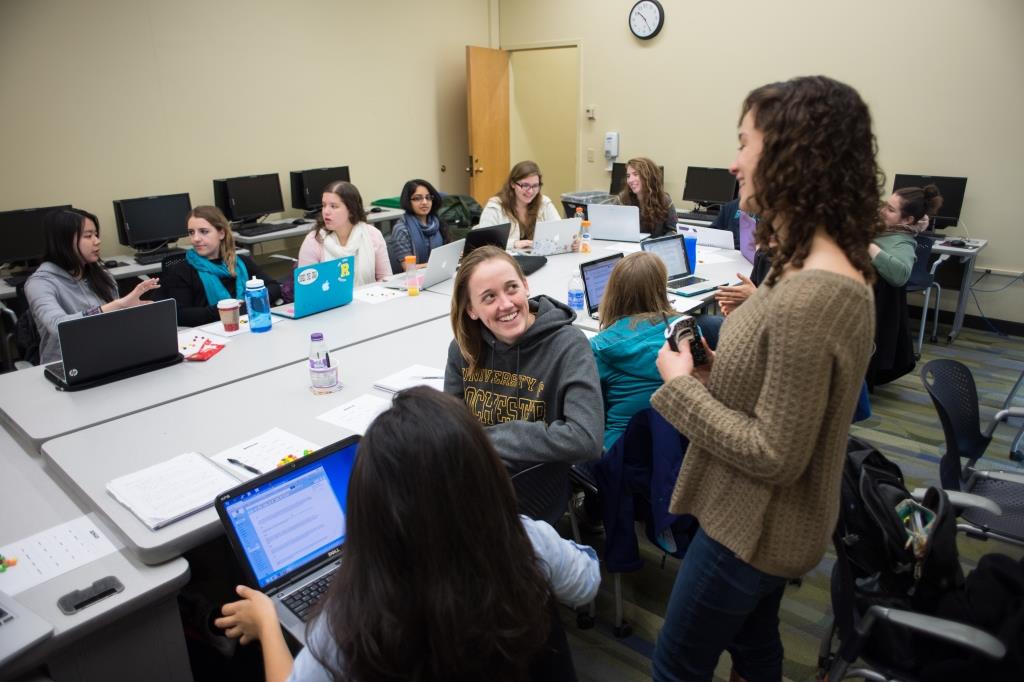My days as a humanities double-major at the University often do not include more than reading novels and research articles and writing essays about the various readings. Every once in a while, however, I see stuff on social media that catches my interest. This happened in the case of Adit Ganguly’s blog post, “A Review of the Mandatory Freshman Writing Course.”

Adit, a freshman, took what is colloquially known as “Freshman Writing” as I and the rest of the University’s undergraduate population have done. Upon reading his blog post, I was reminded of my own experiences taking this course, and realized that the more freshman year becomes part of the past, the more the class has taught me, whether in terms of academic writing or deciding on a major.
Unlike Adit, who enjoyed WRT 105 to the utmost degree, I didn’t. I was a little late to the game, and many of the sections that did interest me were already at full capacity when I signed up. So I registered for a section that looked at least a little more interesting than the others. Thus my first impression of WRT 105 wasn’t all that great.
The semester started and went by quickly (as all semesters do—but especially that first one). I got along well with the other fifteen or so people in the class, and considering that my grades in the class were better than test scores in some of my other classes (read: math), I was doing fine.
Eventually, the final paper rolled around and I was terrified. I was supposed to write eight pages! I felt like I hadn’t learned anything. Sure, we had looked at some basic stuff in class, but it had certainly not prepared me for an eight- to ten-page essay. I had no idea what exactly the final product would or should look like, but I closed my eyes, took a deep breath, and wrote the paper anyway.

In hindsight, it turns out that I did not have to worry as much as I did. I handed in my essay on time and got a good grade in return. But I can’t say that I learned anything concrete, either.
However, what did come from that first semester WRT 105 experience was first and foremost a check mark on the first part of the mandatory writing requirement, and a grade that suggested that there was still hope for me, despite the fact that my grades from some other classes (once again, read: math) might have suggested otherwise.
But more importantly, what came from that class was a foundation (although a somewhat shaky one) for essay writing at the college level. Spring semester, and especially in the fall of my sophomore year, my courses and the assigned work became more demanding, requiring me to write and read more. Reading articles in particular has really helped me to understand what WRT 105 had intended to introduce to me: a roadmap to explain my thoughts in a (hopefully) coherent and logical way.
As it turns out, all it takes is a little practice. Well, mostly, anyway. Some tears on that laptop keyboard don’t hurt, either.
These things come to mind when I (a junior during winter break) take a walk down memory lane and remind myself of that once oh-so-dreaded WRT 105 course first semester. What I did realize very quickly is that the people in that same section were pretty cool. So cool, in fact, that I still hang out with them today. Were it not for that class, I might never have come in contact with people I now consider some of my best friends.
There are other stories, of course, some far better than my own, to be told about WRT 105. One of my freshman residents last year told me, “Writing [WRT 105] is a nice break from all that math I’m doing.” Later that year, that student’s biomedical engineering major was exchanged for one in religion.
Not all WRT 105 experiences are as dramatic as these. The course might just give you enough confidence your freshman year, so that when you’re faced with three 15- to 20-page essays your junior year, you keep your cool and don’t despair. No more than usual, anyway.

